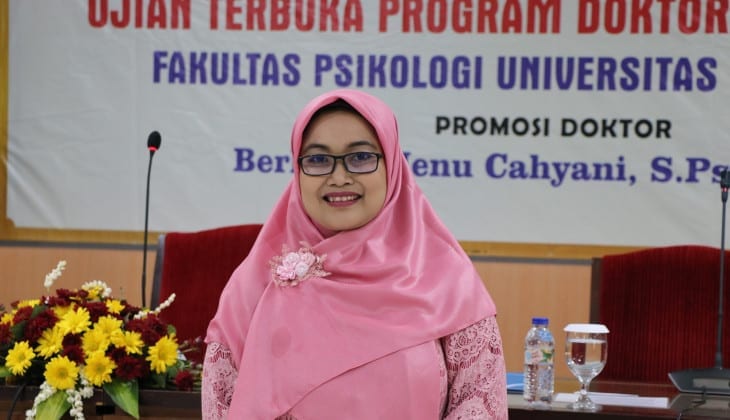
Math subjects are still considered difficult lessons. Therefore, it is necessary to be able to learn the right learning strategies so that many students are easier to understand this subject.
Berliana Henu Cahyani, S. Psi., M. Psi, a lecturer at Faculty of Psychology, Sarjanawiyata Tamansiswa University, Yogyakarta, argues that one of the strategies that students can implement in learning mathematics is through regulatory-based learning. With this strategy, he said, students will direct themselves to achieve learning objectives by actively participating in cognitive and behavioral motivation.
“So the research I do, how to review internal factors that contribute to learning based on mathematical self-regulation,” said Berliana, at the Faculty of Psychology UGM, Monday (29/7).
Conducting an open examination of the Doctoral Program of the Faculty of Psychology UGM with a dissertation on learning based on self- regulation mathematics in high school students, Berliana revealed that the purpose of the research he conducted was to examine the theoretical role of class management perception, orientation purpose mastery, problem- solving ability to learn based on mathematical self-regulation through the sense of having a school.
“Research was conducted against 165 students of XI IPA class of eight public schools in Sleman Regency, located in villages, sub-urban, agglomeration, and Bufferzone. As for the sampling techniques in this study with multi-stage random sampling clusters, “he said.
While the measuring instrument used is the self-regulation-based learning scale, the sense scale has a school, the scale of classroom management, the orientation scale of the mastery objectives, and the scale solving ability problem. From data analysis using Structural Equational Modeling (SEM), the research results indicate when the theoretical model filed in the study was received and supported by empirical data.
“The perception of class management and problem-solving ability plays a direct role in the orientation of the mastery objectives, while the ability to solve the problem and orientation of the mastery goal plays directly against learning based on mathematical self-regulation,” said Berliana.
It concludes that the orientation of the mastery objectives acts as a mediator between the perception of class management and the ability to solve the problem of learning based on mathematical self-regulation, while the perception of class management and problem-solving ability plays a direct role in having school.
“From this research was concluded also if the sense of having a school does not act as a mediator between the perception of class management, the orientation of mastery objectives, ability to solve the problem of learning based on mathematical self-regulation,” he said.
From this research, Berliana advises the school can provide support in teaching math learning process to learn based on self-regulation can develop more optimally, for example through improved teaching-learning facilities, improving the quality of teachers in managing the class by participating teachers in the training activities of competency improvement and help overcome the problem-solving students. For the enhancement of facilities supporting the teaching-learning process, for example by improving technology and information facility, the utilization of websites for information media and learning students. (Public relation UGM/Agung)
